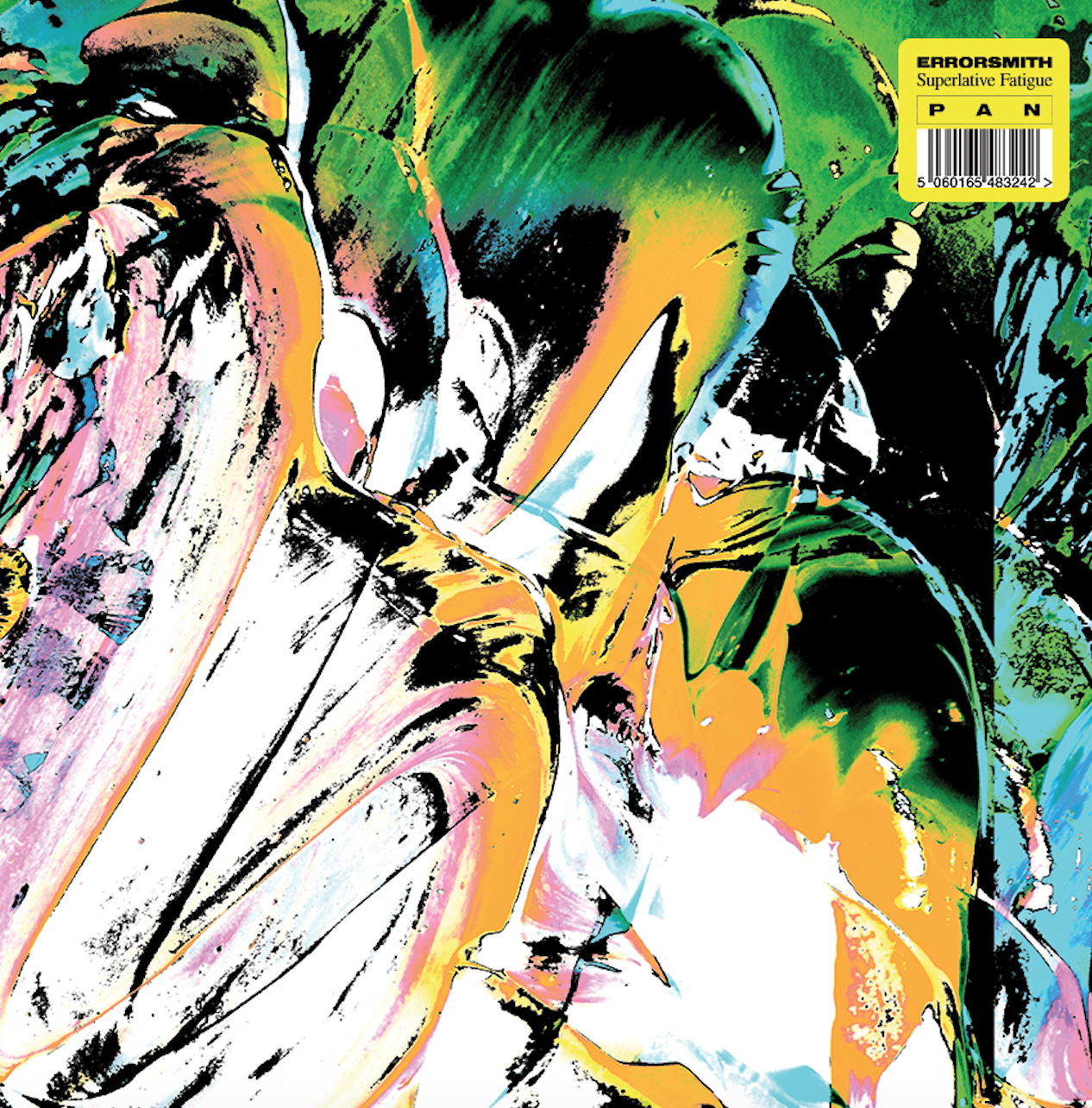Errorsmith ‘Superlative Fatigue’
Erik Wiegand returns to Pan with a mature and sophisticated new LP.

Superlative Fatigue is Errorsmith’s first long-player in 13 years. There’s always a tension when we hear things like that. Will it be any good? He, Erik Wiegand, has certainly not been out the picture in the meantime—he’s put out plenty of 12”s—and the people who are into this particular, deeply synthetic sound are really into it. The guy’s a gear boffin. He’s made his own musical world, and we’re all welcome.
Almost all the sounds in the LP were made by Wiegand on the Razor plug-in he designed for Native Instruments. They’re incredibly clean and ordered, even when the intensity is high. This isn’t the musician that lets sounds wander and mistakes be fortunate accidents or means of discovery. Yet there’s a clear sense of playfulness. A musician jamming, enjoying himself on instruments he’s built, fantasizing about androids, spending time having fun in his sonic dimension.
The drum patterns and tones are reminiscent of the Durban sound of Gqom, Kwaito electro, the no-bullshit batida aesthetic of Portugal; sparsely rhythmic, efficient, designed for androids or humans to battle to on dancefloors across the nebulae.
And indeed, this LP has characters. It plays like a story. Wiegand said the music makes him imagine an android, and that he finds it “touching when this little android raises its pitch at the end of “Lightspeed” or the android catching its breath in “My Party.” This android is the synth melody that leads each track.
Each track has a quite small palette of rhythmic sounds like drums and percussion, and the songs are led by the synth melody, the voice of each track, if you will. On “Who-Is,” this android is singing. About what? There aren’t lyrics in the usual sense. A tune like “I’m Interesting, Cheerful & Sociable” could be the android energetically defending himself against accusations of being boring and reclusive. He shows those other androids what he can be like, even if he is sometimes a drag. And all this presumably not on Earth but some galactic colony, in the rec room or the android’s equivalent of a pub or club on their weekend (if they have one), as it—the genderless android—supplements its argument with an impressive dance routine, all gleaming metal, to the surprised onlooking fellow androids.
When the title track “Superlative Fatigue” hits, the more cerebral braindance soloing of the android turns into something more primal. The voice expands and any onlooking androids are now dancing in funky precision with the leader android. The party, the entertainment, has moved from the head to the booty. This is a big tune for all manner of dancefloors terrestrial or otherwise.
The next track “Retired Low-level Internal Server” slows the dance to a stepping, but no android leaves the floor. In fact, now we’ve got a dialogue between multiple voices. Responding to the spritely and limber high voice, there’s the lower and slower voice of the old guard, the retired low-level internal server, and it’s showing some of the moves from back in the day, a little slower than in its prime, a little stiff, but there’s a flash towards the end that makes all the young androids stop and know this retired low-level internal server was once the bad boy of the local clubs.
Errorsmith has matured since 2004’s Near Disco Dawn LP, which is a noisier, more primitive collection of live recordings from the first years of the new Millenium. Those tracks jerk from idea to idea; these ones groove. Whilst the sound palette on both albums is similar and recognizable as Wiegand, Superlative Fatigue has a subtle arrangement, and is rhythmically more sophisticated without being denser. It is so far the superlative long-form expression of Errorsmith and has some of the electro fire of the first MMM 12”s, Wiegand’s collaboration with Fiedel.
This is a true LP. One disc, two sides of music. Progression and a good length to actually listen through. The cover graphics are a joyful, vividly colored abstract painting by James Hoff. The title track is universal dynamite. And overall Superlative Fatigue is good for the brain—and the butt.

